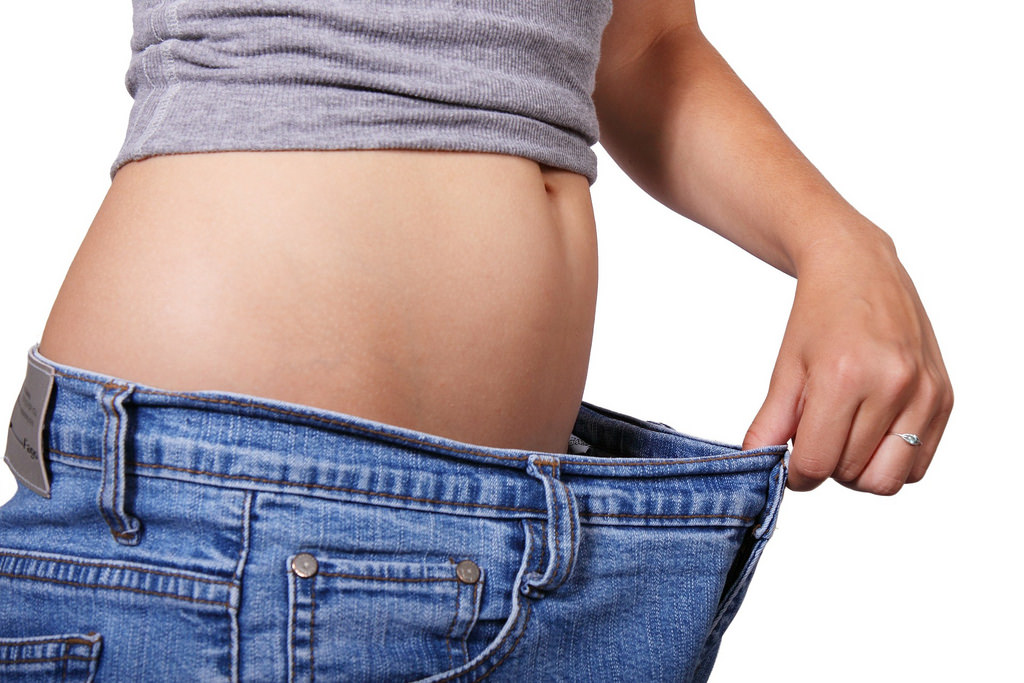By recent ASU nutrition student Alysia Nelson
Part of an ongoing series of articles on the Ketogenic Diet
A ketogenic diet is reported to have a hunger-reduction phenomenon. In fact, a ketogenic diet has such satiating effects that calorie counting is noted amongst dieters to be unnecessary. Almost every article you read about the ketogenic diet states that a ketogenic diet keeps you full because its main macronutrient is fat, followed by protein. That leads us to the next question, is dietary fat satiating? Can a ketogenic diet be a hunger suppressor?

There are two terms very closely used, however, meaning different things: satiation and satiety. Satiation is the end of desire to eat after a meal.1 Satiety is a physical feeling of fullness that allows us to stop eating.1 It is very similar to hunger vs. appetite. Hunger is the physical need for food (stomach growling) whereas appetite is the desire for food.2 Although all centered around the same thing, food, the behaviors come from different things. Hunger is the body’s way of telling us that it needs to be replenished with fuel (food) and it occurs when blood glucose levels fall.2 Appetite is a sensory reaction to the look and smell of food, a conditioned response.2 Appetite is a behavior that controls cravings influenced by the sensory reaction of food, increasing or decreasing depending on personal taste preferences, availability of food, your health, and emotional state.2
How does the body know when it is and isn’t in need of more food? Hunger is regulated by our metabolism and hormones secreted from the thyroid.2 The brain uses satiety signals from hormones and produces dopamine neurons to create motivation for food.2 This means that when hormones have received proper nutrients, it sends a message to the brain saying that the individual has done its job and can stop eating. The brain rewards the individual by releasing pleasant rewarding feelings because it wants the individual to carry on this relationship of eating when signaled. This brings us to a frequently asked question: does dietary fat play a role is satiety?
It is a common misconception that eating fat makes you fat, in fact, this theory has never been scientifically proven. It is quite the opposite really, healthy fats have proven to be a positive and necessary addition to an individual’s diet.3 In a controlled study produced in the National Center for Biotechnology Information (NCBI) fats are proven to have an effect on satiety through the release of appetite hormones and inhibition of gastric emptying and intestinal transit, the release of food from your stomach to your intestines.3 However noted, heart-healthy monosaturated fats are excellent sources of satiety and not just all fats.3 In another study conducted by the NCBI the hunger-reducing phenomenon in a ketogenic diet is well documented due to the release ketones.4 Ketones trigger a normal glucose meal response, reducing the desire and need for more food.4 A ketogenic diet reduces hunger and lower’s food intake more than a high-protein combined with medium-carbohydrate diet.5
A ketogenic diet can be used to suppress hunger by changing the way an individual’s metabolism works to break down fats as opposed to carbohydrates.6 When this process, ketosis, is occurring ketones help naturally reduce appetite and cravings.6 Ketosis is also noted to control hormones related to weight loss such as Ghrelin, appetite increasing hormone, and Cholecystokinin (CCK), a hormone causing fullness.6 Ketones can trigger responses such as utilizing leptin signals to the brain which allows the body to increase metabolism instead of slowing.6 A ketogenic diet takes a focus on nutrient-dense foods, allowing the body to eat fewer calories, while still allowing an individual to eat high-quality satisfying foods.
1 Anthony, M. (n.d.). Understanding Satiation and Satiety. Retrieved April 16, 2018, from https://www.foodprocessing.com/articles/2014/understanding-satiation-and-satiety/
2 Weaver, L. (2017, January 23). Hunger Vs. Appetite: What’s The Difference? Retrieved April 16, 2018, from https://www.foodmatters.com/article/hunger-vs-appetite-whats-the-difference
3 Samra, R. A. (1970, January 01). Fats and Satiety. Retrieved April 16, 2018, from https://www.ncbi.nlm.nih.gov/books/NBK53550/
4 Paoli, A., Bosco, G., Camporesi, E. M., & Mangar, D. (2015). Retrieved April 16, 2018, from https://www.ncbi.nlm.nih.gov/pmc/articles/PMC4313585/
5 Johnstone, A. M., Horgan, G. W., Murison, S. D., Bremner, D. M., & Lobley, G. E. (2008, January). Effects of a high-protein ketogenic diet on hunger, appetite, and weight loss in obese men feeding ad libitum. Retrieved April 16, 2018, from https://www.ncbi.nlm.nih.gov/pubmed/18175736
6 How to Use Ketosis for Hunger Suppression – Perfect Keto. (2018, January 16). Retrieved April 16, 2018, from https://www.perfectketo.com/how-to-use-ketosis-for-hunger-suppression/
Editor’s Note: Fill Your Plate neither endorses or supports this type of diet, but encourages readers to always consult with your doctor regarding special diets. This series shares one nutrition student’s experience with the diet.

